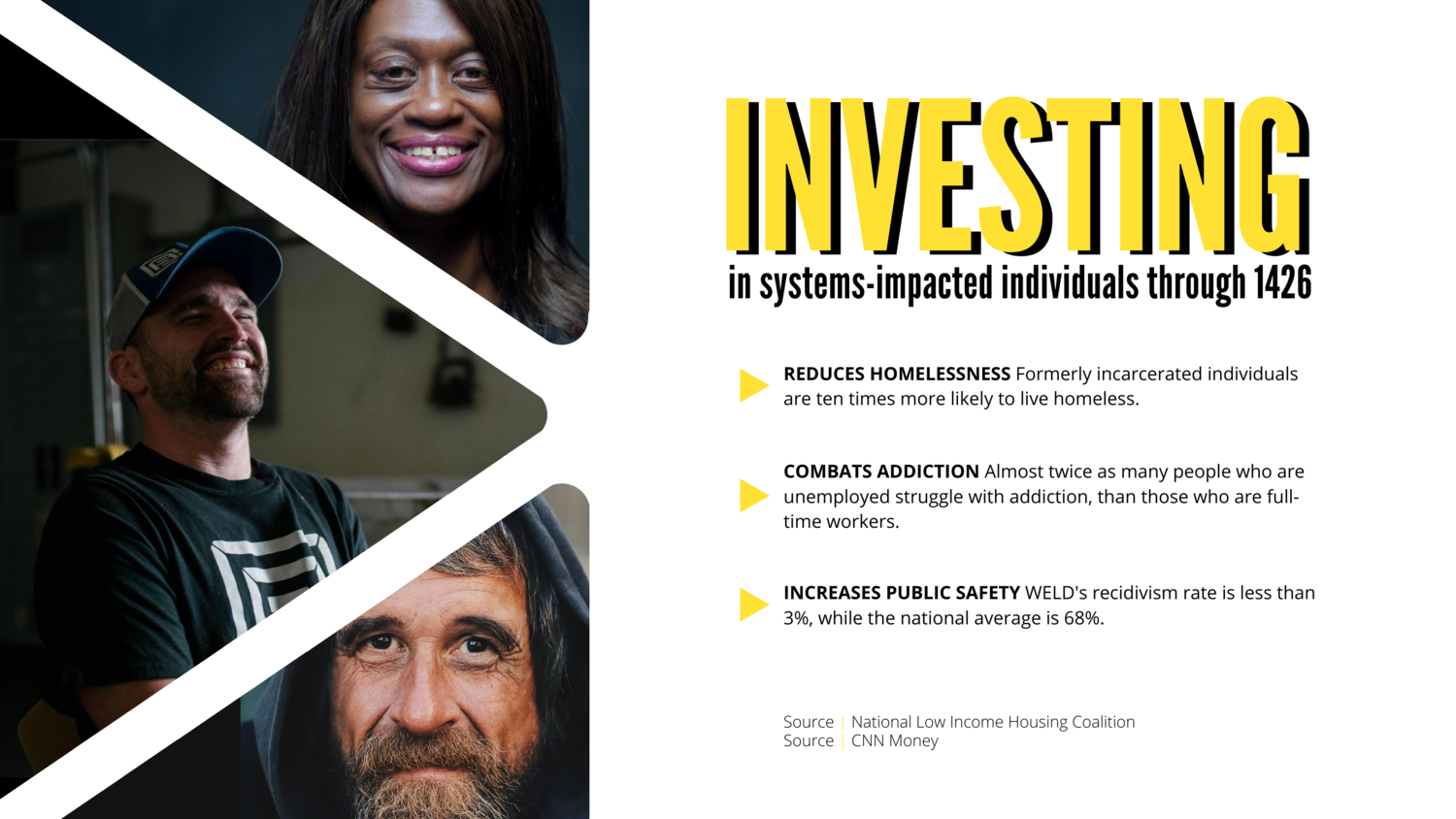HDC Member Highlight: Square Peg & Weld Seattle
 It is no secret finding a pitch perfect team is difficult. For the owners of Square Peg, Amy and Brady King, this challenge was heightened by the recession and workforce shortages in 2014. Square Peg had the work, the clients, and the partners but desperately needed a complete staff of skilled craftspeople.
It is no secret finding a pitch perfect team is difficult. For the owners of Square Peg, Amy and Brady King, this challenge was heightened by the recession and workforce shortages in 2014. Square Peg had the work, the clients, and the partners but desperately needed a complete staff of skilled craftspeople.
By the time the two found their all-star team, they discovered a whole new mission for their vocations.
All of their top candidates had extensive criminal histories. Something that most employers turn away from. However, Amy and Brady looked at each employee seeking a new start and saw each of their potential. “Their stories about reentry and the criminal justice system were so heartbreaking,” Amy said. “One hundred percent of them experienced significant childhood trauma, and they all took responsibility for the decisions they had made.”
Square Peg’s mission grew from building buildings in Seattle to transforming communities through the building of quality spaces and productive people. This mission is proudly the center piece of what they do.
While Square Peg grew, their efforts to support their employees in the reentry process did to. “A job is one thing. It provides a community, a purpose, financial compensation, and independence,” explained Amy, “But there are so many additional barriers to reentry. Housing was definitely the biggest.” At the time, few programs were available for formerly incarcerated people to connect with housing. Despite having a job, many Square Peg employees were struggling to find stable, long-term, and affordable housing.
Thus, Amy, Brady and a number of their staff founded Weld Seattle. Weld is a non-profit with a truly one-of-a-kind approach to housing formerly incarcerated folks. To support employees in finding transitional housing, Amy asked development partners if Square Peg employees can stay in the vacant developments while awaiting proper permitting. In Seattle, buildings can sit vacant 12-18 months waiting for permit approval. In the meantime, developers pay a significant amount in fees throughout that period towards the empty residence. With some convincing, many partners agreed. This unconventional agreement has transformed into Weld’s entire housing model and city legislation.
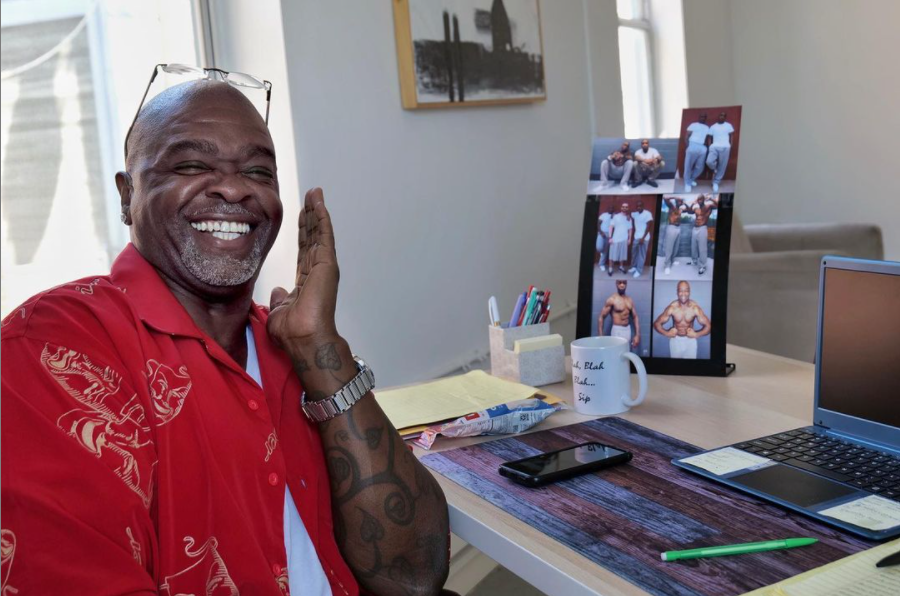 With support from housing champions on Seattle City Council, the Weld team helped to create legislation to “donate” vacant properties while awaiting permitting for transitional housing. It creates a tax incentive for the properties and waives fees for vacant developments since the space is occupied. Nearly 60% of Weld members have moved from Weld housing into a permanent home.
With support from housing champions on Seattle City Council, the Weld team helped to create legislation to “donate” vacant properties while awaiting permitting for transitional housing. It creates a tax incentive for the properties and waives fees for vacant developments since the space is occupied. Nearly 60% of Weld members have moved from Weld housing into a permanent home.
Weld Seattle has continued to house folks while launching Weld Works which will temporarily place workers in construction and manufacturing companies. So far, Weld Works has placed seventy-nine temporary workers. Forty-eight have moved into permanent employment.
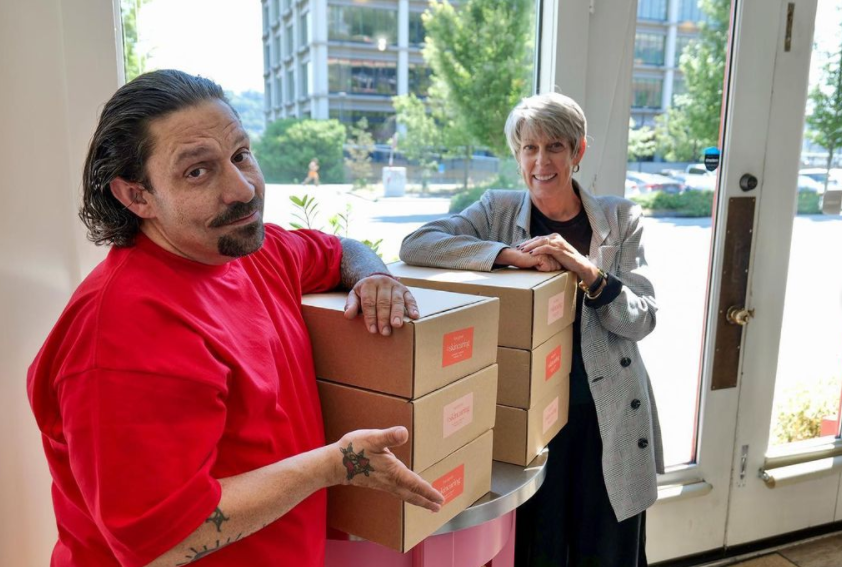 As addressing homelessness is fundamental to their values, Square Peg and Weld are eager to connect with other teams to collaborate on projects in the affordable housing sector. Square Peg’s team not only offers expertise, but also insights with lived experience of resident needs. Square Peg’s goal is to continue to grow more opportunities but also to draw people into the construction workforce. Along with exploring outreach opportunities within prisons, they are looking into apprenticeship and pre-apprenticeship programs in partnership with the Department of Corrections.
As addressing homelessness is fundamental to their values, Square Peg and Weld are eager to connect with other teams to collaborate on projects in the affordable housing sector. Square Peg’s team not only offers expertise, but also insights with lived experience of resident needs. Square Peg’s goal is to continue to grow more opportunities but also to draw people into the construction workforce. Along with exploring outreach opportunities within prisons, they are looking into apprenticeship and pre-apprenticeship programs in partnership with the Department of Corrections.
Within the next year, Weld is opening 1426, a coordinated reentry resource center that brings service providers together. The building, located in the heart of Seattle’s International District, was donated for Weld’s use in 2019 by Sarah and Richard Barton, Founder and CEO of Zillow Group and founder of Expedia and Glassdoor.
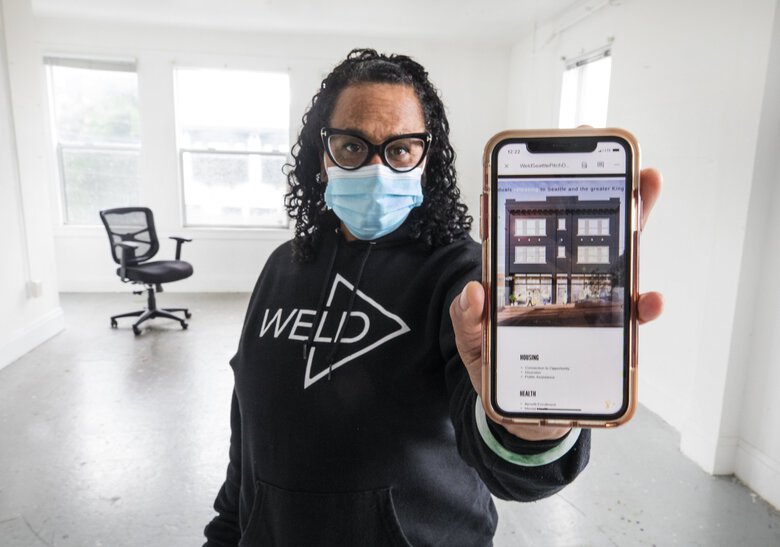
The goal of this project is to reduce recidivism rates, homelessness, and addiction by providing a centralized resource center for people already receiving services or involved in programs to ease the transition of formerly incarcerated people into the community. It will offer a space to heal from the trauma that led to member’s involvement in the criminal justice system, along with health and wellness programming, connection to legal resources, mentorship, adult education classes, a construction trades training program, family reunification assistance, connection to public services, and trauma informed yoga, art, and music therapy.
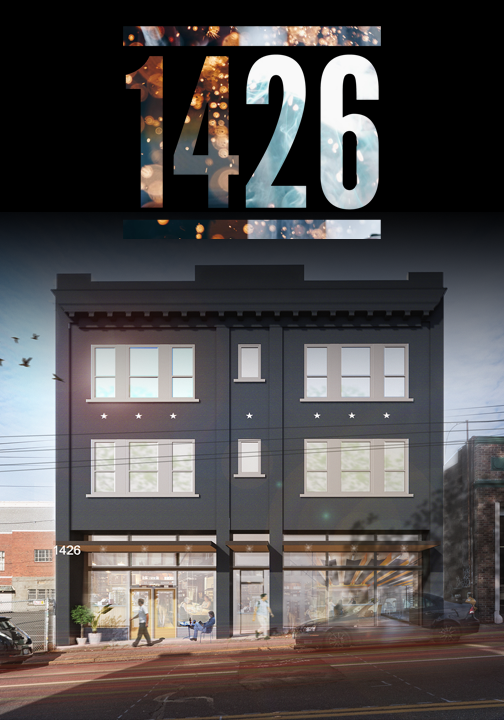 “Having a physical space in the city that allows us to provide comprehensive services to reintegrating citizens has always been part of our dream. Weld was created with the intention of community collaboration. Creating a space where people with lived experience have a voice and a platform to initiate necessary change is the key to our ongoing success in disrupting systemic inequities in Seattle,” explained Amy King. “In a time when the appropriate path to public safety is being questioned, the purpose of 1426 feels more important and relevant than ever. We are so grateful to the Barton’s for their generosity and look forward to identifying other sponsors and partners that can help us achieve our fundraising goal so we can start renovations and implement more programs as soon as possible.”
“Having a physical space in the city that allows us to provide comprehensive services to reintegrating citizens has always been part of our dream. Weld was created with the intention of community collaboration. Creating a space where people with lived experience have a voice and a platform to initiate necessary change is the key to our ongoing success in disrupting systemic inequities in Seattle,” explained Amy King. “In a time when the appropriate path to public safety is being questioned, the purpose of 1426 feels more important and relevant than ever. We are so grateful to the Barton’s for their generosity and look forward to identifying other sponsors and partners that can help us achieve our fundraising goal so we can start renovations and implement more programs as soon as possible.”
Square Peg and Weld Seattle welcome HDC members partnership and collaborations in these next projects. To work with Square Peg or to learn more, complete their contact form. To engage in 1426 or Weld’s housing program, reach out to Amy King at [email protected].



